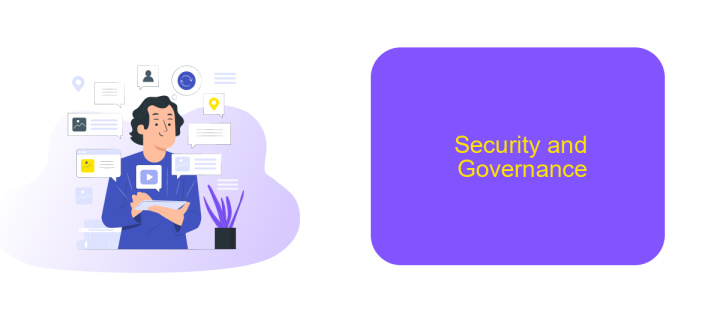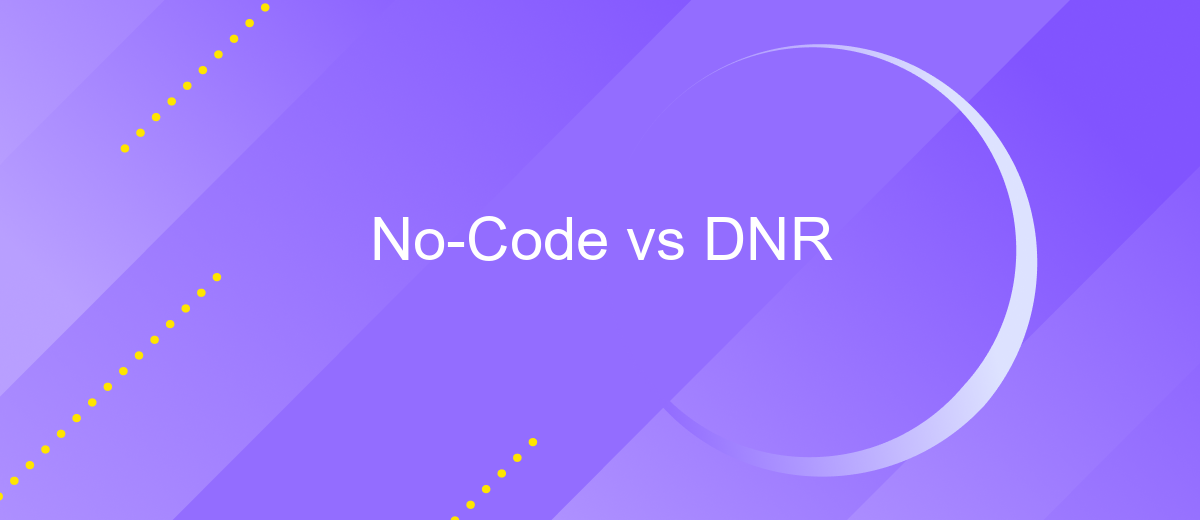No-Code vs DNR
In today's fast-evolving tech landscape, the debate between No-Code platforms and traditional Development and Release (DNR) methodologies has gained significant attention. No-Code tools promise to democratize software creation, enabling non-developers to build applications with ease. Conversely, DNR offers robust, scalable solutions for complex projects. This article explores the strengths and weaknesses of both approaches to help you make an informed decision.
No-Code/Low-Code Overview
No-Code and Low-Code platforms are revolutionizing the way businesses develop software by enabling users to create applications with minimal or no coding skills. These platforms offer visual development tools and pre-built templates, allowing faster deployment and reducing the dependency on traditional software developers.
- Rapid Application Development (RAD)
- Cost Efficiency
- Enhanced Collaboration
- Scalability
One of the key advantages of No-Code/Low-Code platforms is the ease of integrating various services and APIs. Tools like ApiX-Drive simplify the process of connecting different software applications, making it seamless to automate workflows and data transfers. This integration capability is crucial for businesses looking to streamline operations without extensive technical expertise.
Design and Development

Design and development in the context of No-Code platforms and traditional Development and Release (DNR) approaches present distinct paradigms. No-Code platforms enable users to create applications through graphical interfaces without writing a single line of code. This democratizes the development process, allowing non-technical users to build and deploy applications quickly. Tools like ApiX-Drive facilitate seamless integration with various services, automating workflows and enhancing productivity without the need for extensive coding knowledge.
On the other hand, DNR relies on professional developers who write, test, and deploy code manually. This approach offers greater flexibility and control over the application’s features and performance. However, it also requires significant time and technical expertise. While No-Code platforms excel in rapid prototyping and simple applications, DNR is ideal for complex, customized solutions. The choice between No-Code and DNR ultimately depends on the project’s requirements, timeline, and available resources.
Collaboration and Sharing

Collaboration and sharing are essential aspects of both No-Code and DNR platforms, enabling teams to work together more effectively. These platforms offer various tools and features that facilitate seamless collaboration, allowing users to share their work, gather feedback, and iterate quickly.
- No-Code platforms often include built-in collaboration tools such as real-time editing, commenting, and version control, making it easy for multiple users to work on the same project simultaneously.
- DNR platforms, on the other hand, may require more manual setup for collaboration, but they provide robust APIs and integration options to connect with third-party collaboration tools like Slack and Trello.
- Services like ApiX-Drive can be particularly useful for both No-Code and DNR platforms, as they allow users to automate data transfer between different apps, ensuring that everyone stays updated with the latest information.
Overall, the choice between No-Code and DNR for collaboration and sharing depends on the specific needs and preferences of the team. While No-Code platforms offer more out-of-the-box tools, DNR platforms provide greater flexibility through custom integrations and automation services like ApiX-Drive.
Security and Governance

When comparing No-Code and DNR platforms, security and governance are crucial factors that organizations must consider. No-Code platforms often provide built-in security features, enabling users to create applications without extensive coding knowledge while adhering to security standards. However, the ease of use in No-Code platforms can sometimes lead to overlooked security vulnerabilities if not properly managed.
DNR (Developer-Needed Resources) platforms, on the other hand, offer more granular control over security settings and compliance measures. This allows for a more tailored approach to security, which can be critical for industries with stringent regulatory requirements.
- Enhanced user authentication and authorization
- Data encryption and secure data storage
- Compliance with industry standards such as GDPR and HIPAA
- Regular security audits and vulnerability assessments
For both No-Code and DNR platforms, integrating with third-party services like ApiX-Drive can streamline security and governance processes. ApiX-Drive allows for seamless integration of various applications, ensuring that data flows securely between systems while maintaining compliance with security policies. This integration capability is essential for maintaining a robust security posture in today's interconnected digital landscape.


Pricing and Support
When evaluating No-Code and DNR platforms, pricing and support are crucial factors to consider. No-Code platforms typically offer tiered pricing models, ranging from free basic plans to more comprehensive packages with advanced features. These platforms often include extensive support options like community forums, tutorials, and customer service to assist users in navigating the tools. In contrast, DNR platforms usually have a more complex pricing structure due to the specialized nature of the services they offer. They may charge based on the number of integrations or the volume of data processed, making them potentially more expensive but also highly customizable.
Support for DNR platforms often involves more personalized assistance, including dedicated account managers and technical support teams. This is essential for businesses requiring tailored solutions and intricate integrations. For instance, services like ApiX-Drive can facilitate seamless integration between various systems, offering both No-Code and DNR users a robust solution for automating workflows. ApiX-Drive provides detailed documentation and responsive support, ensuring that users can effectively implement and maintain their integrations without extensive technical knowledge. This makes it an invaluable resource for businesses looking to optimize their operations through automation.
FAQ
What is the main difference between No-Code and DNR?
Can No-Code platforms be used for complex projects?
Are No-Code solutions scalable?
How can I integrate different software systems without coding?
Is using a No-Code platform secure?
Apix-Drive will help optimize business processes, save you from a lot of routine tasks and unnecessary costs for automation, attracting additional specialists. Try setting up a free test connection with ApiX-Drive and see for yourself. Now you have to think about where to invest the freed time and money!

